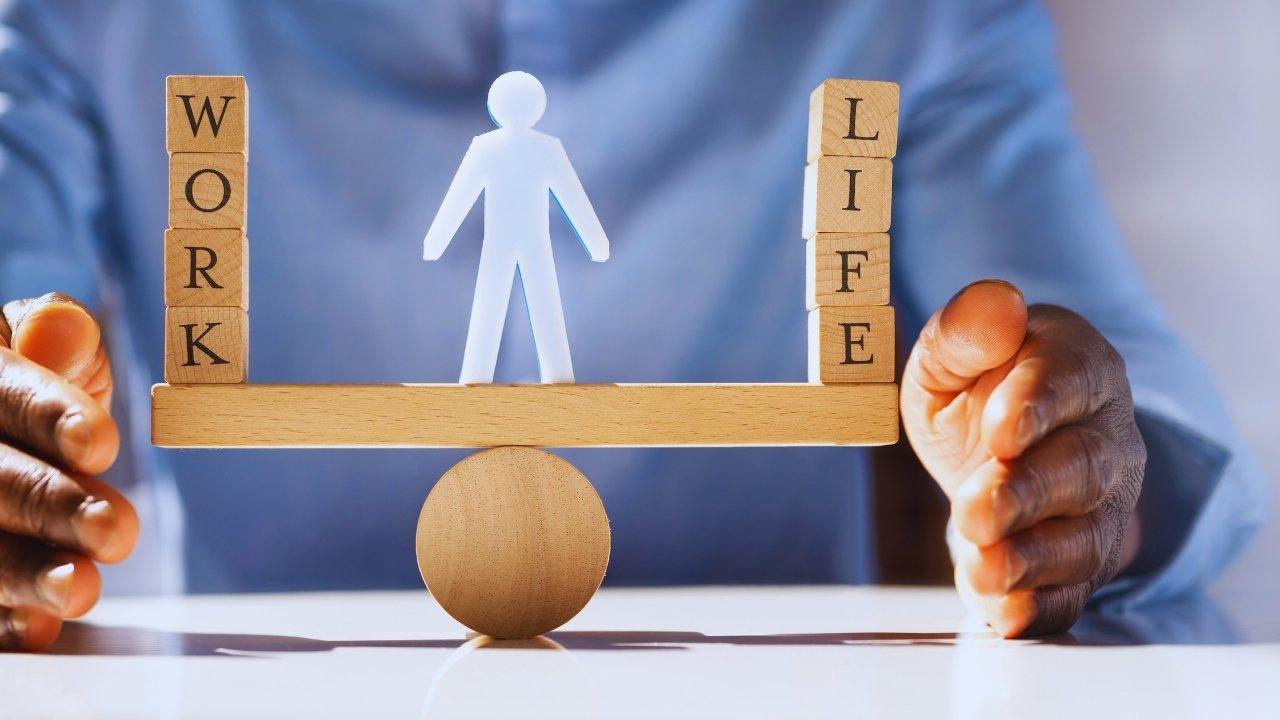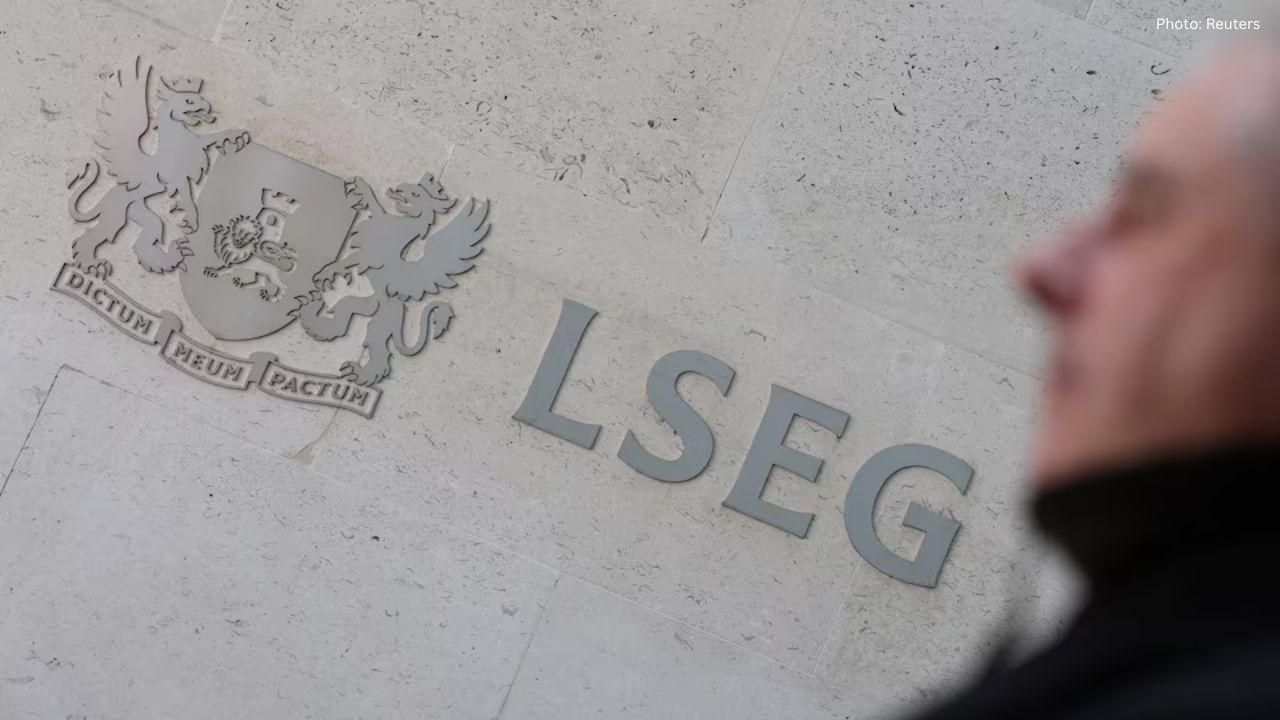You have not yet added any article to your bookmarks!

Join 10k+ people to get notified about new posts, news and tips.
Do not worry we don't spam!

Post by : Anis Farhan
The concept of work-life balance has become one of the most discussed topics of our time. In an era where professional expectations are rising and technology blurs the boundaries between work and home, finding equilibrium feels almost impossible. Yet, achieving a balanced life is not about perfect symmetry — it’s about intentional living. It involves making conscious choices that align with one’s goals, values, and well-being.
Balancing work, family, relationships, health, and self-growth is an ongoing process. It demands self-awareness, discipline, and flexibility. Understanding how to manage your time, energy, and priorities can make the difference between living reactively and living purposefully.
Balance does not mean giving equal time to everything. Instead, it means giving the right amount of time to what truly matters. For some, balance might mean excelling in their careers while nurturing relationships; for others, it might mean focusing on health and peace of mind.
The idea of balance shifts depending on life stages. A young professional might focus on career growth, while a parent may prioritize family time. Recognizing that balance is fluid — not fixed — helps reduce guilt and sets realistic expectations.
Work is a major part of life and often a source of pride and purpose. However, when one’s identity becomes entirely tied to their job, it can create imbalance. Many people measure success by hours worked rather than by the quality of their output or the fulfillment it brings.
The key lies in redefining what success means. Does success only come from career advancement? Or does it also include happiness, mental peace, and meaningful relationships? The most balanced individuals view work as a part of life, not the whole of it.
Technology has transformed how we work and live. Remote work offers flexibility, but it also extends work into personal spaces. Smartphones and laptops make it easy to stay connected but harder to disconnect. The constant influx of emails, messages, and notifications can create a sense of never-ending work.
To manage this, setting boundaries is crucial. Turn off work notifications after hours, avoid checking emails late at night, and designate specific work-free zones at home. Digital discipline is essential to protect mental energy and preserve personal time.
Sometimes, imbalance creeps in unnoticed until it manifests as burnout, exhaustion, or emotional detachment. Common signs include:
Feeling constantly rushed or behind
Neglecting hobbies and personal interests
Experiencing frequent stress or irritability
Reduced quality time with loved ones
Difficulty focusing or enjoying downtime
Recognizing these signs early can prevent more serious issues. Rest and recovery are not luxuries — they are necessities for productivity and mental well-being.
Boundaries are the foundation of balance. They protect personal time, relationships, and mental health. Saying “no” is not selfish; it’s a declaration of priorities.
Establish clear working hours and communicate them with colleagues. Avoid overcommitting and learn to delegate tasks when possible. In personal life, establish boundaries that ensure rest, family time, and hobbies remain uninterrupted. Boundaries are what transform chaos into clarity.
Effective time management is at the heart of balance. It’s about distinguishing between what’s urgent and what’s truly important. Many people fill their schedules with low-value tasks, leaving little energy for what matters most.
Start each day by identifying top priorities. Use tools like calendars or planners, but also leave room for flexibility. Focus on completing high-impact tasks first. Remember, managing time efficiently means making deliberate choices, not just working harder.
Self-care is not indulgence; it’s maintenance. Without caring for your body and mind, balance is impossible. Regular exercise, nutritious food, adequate sleep, and mindfulness practices are all key components of a healthy lifestyle.
Even small rituals — like morning walks, journaling, or reading — can make a big difference. Taking time for yourself doesn’t mean neglecting others; it ensures you have the energy and emotional stability to give your best to every part of life.
Healthy relationships are essential for emotional balance. However, they require time, attention, and genuine connection. In the digital age, many people confuse online communication with real intimacy.
Make an effort to spend quality time with loved ones — without distractions. Listen actively, engage in meaningful conversations, and show appreciation. Strong relationships provide emotional support, help reduce stress, and remind us that we are more than our jobs.
For working parents, balancing family responsibilities and career growth can be particularly challenging. The guilt of not doing enough at home or work can be overwhelming.
The solution lies in integration rather than separation. Include your family in conversations about work demands, share schedules, and plan dedicated family time. Likewise, let your workplace know your limits and communicate clearly about personal commitments. Flexibility and honest communication make balance achievable.
One of the most powerful ways to achieve balance is to cultivate fulfillment outside of professional achievements. Hobbies, creative pursuits, and volunteer work can bring joy and meaning. These activities recharge mental energy and foster a sense of purpose beyond financial or career success.
Whether it’s painting, gardening, traveling, or learning new skills, exploring personal passions creates a richer, more balanced life. It reconnects individuals to their inner selves and helps combat the feeling of monotony that often comes with work-heavy routines.
Emotional well-being plays a vital role in maintaining balance. Chronic stress, anxiety, and pressure to perform can lead to burnout. Practicing mindfulness, meditation, or yoga helps restore calm and focus.
Seeking therapy or counseling is also a healthy step toward understanding personal triggers and managing stress. There is strength in acknowledging mental health needs. Emotional resilience allows individuals to navigate challenges without losing stability.
While individuals are responsible for managing balance, organizations also play a key role. Companies that promote flexible hours, wellness programs, and mental health support tend to have more satisfied employees.
Encouraging open communication, respecting personal boundaries, and recognizing employees’ efforts create a culture where balance is possible. Workplaces that value people over productivity alone see higher morale and better long-term performance.
Life rarely goes according to plan. Sudden changes — job loss, illness, or family issues — can disrupt even the best routines. The ability to adapt determines how well one maintains balance during turbulent times.
Instead of striving for rigid control, focus on adaptability. Reassess priorities, adjust schedules, and accept that imbalance is sometimes temporary. Flexibility is not failure; it’s resilience in action.
Often, imbalance stems from trying to do too much. Simplification helps eliminate unnecessary stress. Declutter your environment, reduce digital distractions, and focus on fewer but more meaningful goals.
Living intentionally means choosing quality over quantity — fewer meetings, fewer possessions, fewer comparisons, and more purpose. Simplicity creates mental clarity, leaving room for what truly matters.
Balance is personal — no one formula fits all. To build your own equilibrium, identify your core values. What gives your life meaning? What are your non-negotiables?
Create routines that support these values. Schedule downtime, exercise, and family moments just as you would meetings or deadlines. Regularly reassess your routine to ensure it aligns with evolving goals and circumstances.
Consistency, not perfection, sustains long-term balance.
Finding balance in today’s world is not about doing everything — it’s about doing what truly matters. Balance comes from awareness, boundaries, and prioritization. It’s about learning to rest, letting go of perfection, and nurturing both professional ambition and personal peace.
By embracing flexibility and intentionality, we can navigate the complexities of modern life with greater clarity and fulfillment. True balance is not a destination — it’s a continuous practice that helps us live more consciously, meaningfully, and joyfully.
This article is meant for informational purposes only and does not offer professional or psychological advice. Readers seeking guidance on mental health or career-related stress should consult qualified professionals for personalized support.










Ashes Failure Puts Brendon McCullum Under Growing England Pressure
England’s Ashes loss has sparked questions over Bazball, as ECB officials review Test failures and B

Kim Jong Un Celebrates New Year in Pyongyang with Daughter Ju Ae
Kim Jong Un celebrates New Year in Pyongyang with fireworks, patriotic shows, and his daughter Ju Ae

Dhurandhar Day 27 Box Office: Ranveer Singh’s Spy Thriller Soars Big
Dhurandhar earns ₹1117 crore worldwide by day 27, becoming one of 2026’s biggest hits. Ranveer Singh

Hong Kong Welcomes 2026 Without Fireworks After Deadly Fire
Hong Kong rang in 2026 without fireworks for the first time in years, choosing light shows and music

Ranveer Singh’s Dhurandhar Hits ₹1000 Cr Despite Gulf Ban Loss
Dhurandhar crosses ₹1000 crore globally but loses $10M as Gulf nations ban the film. Fans in holiday

China Claims India-Pakistan Peace Role Amid India’s Firm Denial
China claims to have mediated peace between India and Pakistan, but India rejects third-party involv